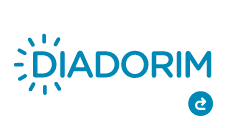“PLANETA TERRA”
Onde estava toda essa diversidade?
DOI:
https://doi.org/10.35699/2237-5864.2019.15728Palabras clave:
Curta-metragem, Coletivo, Animação brasileira, Artista animadorResumen
O presente texto faz uma análise da produção coletiva do curta-metragem de animação brasileiro “Planeta Terra” (1986), com objetivo de mostrar indicadores sobre as condições de atuação e aprendizagem do artista animador brasileiro no contexto do cinema de animação brasileiro da época. Nessa perspectiva, o texto apresenta uma análise das qualidades gráficas e do domínio técnico de concepção do movimento animado, propostos por alguns artistas animadores autores do curta-metragem, no intuito de relacioná-las às habilidades adquiridas por meio da prática da animação nos respectivos contextos de atuação profissional.
Descargas
Referencias
ANIMATION HAS NO BORDERS. Direção: Peter Sweenen. Holanda (1985). Arquivo digital: 4’16” Disponível em: <https://goo.gl/rr9byQ>. Acesso em: 19 mar. 2018. BUCCINI, Marcos. História do Cinema de Animação em Pernambuco. Recife: Serifa Fina, 2017. CENTRO TÉCNICO AUDIOVISUAL. Disponível em: <http://ctav.gov.br>. Acesso em: 19 mar.2018. GALVÃO, Arnaldo. Arnaldo Galvão: Entrevista concedida a Sávio Leite, [s.d]. JOHNSTON, Ollie; THOMAS, Frank. Illusion of Life: The Disney Animation. New York: Hyperion, 1981. INAGAKI, Mitiko; PAULA, Bruna Thaís; SCHNEIDER, Carla. O legado canadense, através do NFB, no desenvolvimento do cinema de animação no Brasil. In: SEMINÁRIO DE HISTÓRIA DA ARTE DO CENTRO DE ARTES DA UFPEL, 11, Anais... n. 2. 2012. Disponível em: <https://goo.gl/XKvidP>. Acesso em: 19 fev. 2018. LEITE, Sávio (Org.). Maldita Animação brasileira. Belo Horizonte: Favela é isso aí [Editora], 2015. MAGALHÃES, Marcos. Animação Espontânea. 2004. 126p. Dissertação. (Mestrado em Design) – Pontifícia Universidade Católica do Rio de Janeiro, Rio de Janeiro, 2004. MAGALHÃES, Marcos. Marcos Magalhães: inédito. Entrevista concedida a Simon Brethé, por e-mail. 12 jan. 2018. MARQUES, Ana Luiza de Almeida. A transição do modo de produção analógico para o digital: impacto da tecnologia no cinema de animação. São Paulo, 2014. Dissertação. (Mestrado em Meio e Processos Audiovisuais) - Escola de Comunicações e Artes, Universidade de São Paulo, São Paulo, 2014. MEMÓRIA da propaganda Brasileira. Disponível em: <http://www.memoriadapropaganda.org.br/>. Acesso em: 13 set. 2018. MORENO, Antônio. A Experiência brasileira no cinema de animação. Rio de Janeiro: Artenova, 1978. MORENO, Antônio. Exercício para o salto. Rev Filme Cultura. n. 60, p.21-27, 2013. STILPEN (STIL), Pedro Ernesto. Lente Filmes apresenta: Mestre da Animação. Documentário. Entrevista concedida a Noilton Nunes. 2017. Disponível em: <https://www.youtube.com/watch?v=h6c6pDltjTg>. Acesso em: 13 set. 2018. MESSIAS, Daniel. Daniel Messias: Entrevista concedida a Ana Luiza de Almeida Marques. 21 out. 2013. NÚCLEO DE CINEMA DE ANIMAÇÃO DE CAMPINAS. Disponível em: <http://nucleodeanimacaodecampinas.blogspot.com.br>. Acesso em:19 mar. 2018. AONDE VAMOS com tanta animação? Revista Filme Cultura. Rio de Janeiro: CTAV - CentroTécnico Audiovisual: n. 60, jul. ago. set. 2013. ISSN 2177-3912. OTTO. Desenhos Animados. Disponível em: <http://www.ottodesenhos.com.br/>. Acesso em: 14 ago. 2018. PLANETA TERRA. Direção: Marcos Magalhães, 1986. Arquivo digital: 7’37”. Disponível em: <https://vimeo.com/14912391>. Acesso em: 19 mar. 2018. SPACCA. Disponível em: <http://www.spacca.com.br>. Acesso em: 14 ago. 2018. SOUZA, E. R; EBERSOL, I; BACK, P. D. P; SCHNEIDER, C; SILVA, A. R. O Cinema de Animação no Rio Grande do Sul e os Animadores Argentinos. Universidade Federal de Pelotas, Pelotas RS/ Universidade Federal do Rio Grande do Sul, Porto Alegre. s.d. WILLIAMS, Richard. The Animator’s Survival Kit: A manual of methods, principles and formulas for classical, computer, games, stop-motion and internet animators. London & New York: Faber and Faber, 2001.
Descargas
Publicado
Número
Sección
Licencia
Derechos de autor 2019 Simon Brethé

Esta obra está bajo una licencia internacional Creative Commons Atribución-NoComercial 4.0.
Los autores que publican en esta revista aceptan los siguientes términos:
- Los autores conservan los derechos de autor y conceden a la revista el derecho de primera publicación, con el trabajo bajo la Licencia Creative Commons Attribution-NonCommercial 4.0 International License que permite compartir el trabajo con reconocimiento de autoría y publicación inicial en esta revista;
- Los autores pueden celebrar contratos adicionales por separado, para la distribución no exclusiva de la versión del trabajo publicado en esta revista (por ejemplo, publicar en un repositorio institucional o como capítulo de un libro), con reconocimiento de autoría y publicación inicial en esta revista.
- Se permite y anima a los autores a publicar y distribuir su trabajo en línea (por ejemplo, en repositorios institucionales o en su página personal) en cualquier momento antes o durante el proceso editorial, ya que esto puede generar cambios productivos, así como aumentar el impacto y la cita del trabajo publicado.
- Es responsabilidad de los autores obtener permiso escrito para utilizar en sus artículos materiales protegidos por la ley de derechos de autor. La Revista PÓS no se hace responsable de las violaciones de los derechos de autor de sus colaboradores.












